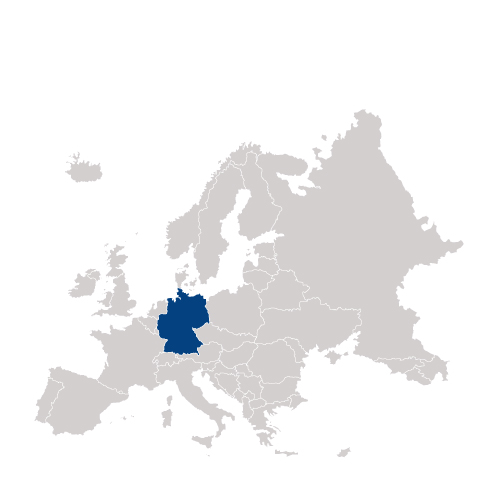Max Plank Institute for Polymer Research
 The Max Planck Institute for Polymer Research (MPI-P) ranks among the top research centers in the field of polymer science worldwide. The institute was founded in 1983 on the campus of the Johannes Gutenberg University, Mainz, and commenced work in June 1984. The focus on so-called soft materials and macro-molecular materials has resulted in a unique position of the Max Planck Institute for Polymer Research and its interdisciplinary research focus. The Max Planck Institute for Polymer Research offers ideal conditions for conducting outstanding research in an international setting of scientists from, currently, about 40 nations. The institute combines all the necessary specialized expertise – from the creative design of new materials, from their synthesis in the lab to their physical characterization as well as the theoretical understanding of polymer characteristics.
The Max Planck Institute for Polymer Research (MPI-P) ranks among the top research centers in the field of polymer science worldwide. The institute was founded in 1983 on the campus of the Johannes Gutenberg University, Mainz, and commenced work in June 1984. The focus on so-called soft materials and macro-molecular materials has resulted in a unique position of the Max Planck Institute for Polymer Research and its interdisciplinary research focus. The Max Planck Institute for Polymer Research offers ideal conditions for conducting outstanding research in an international setting of scientists from, currently, about 40 nations. The institute combines all the necessary specialized expertise – from the creative design of new materials, from their synthesis in the lab to their physical characterization as well as the theoretical understanding of polymer characteristics.
Theory Group: the group is headed by Kurt Kremer, Director at the MPP and PI in the present proposal. The MPIP Theory Group, which is organized like a small department, pursues a broad program of theoretical research in soft condensed matter physics and material science. It has a wide range of research interests: from polymer networks, polyelectrolytes, hydrogels, biopolymers, membranes to generalized hydrodynamics and instabilities, glassy behavior, material science, and organic electronics. More recently non-equilibrium phenomena and data driven methods moved into the focus. The group has a longstanding tradition of developing advanced computer simulation methods for soft matter systems.
Expertise and infrastructure related to the project
The group of K. Kremer runs a local HPC Linux cluster for method development and small scale simulations. Beyond that it has access to the Tier 1 supercomputer of the Max Planck Society at the MPCDF in Garching. Furthermore, our own open source software ESPResSo++ for simulations and VOTCA for model development/parametrization provides an efficient and well-maintained simulation environment. Its software ESPResSo++ is a flexible general purpose simulation software, which can easily been extended to specific applications and is able to handle input files from rather different packages used in the wider community.
LOCATION

